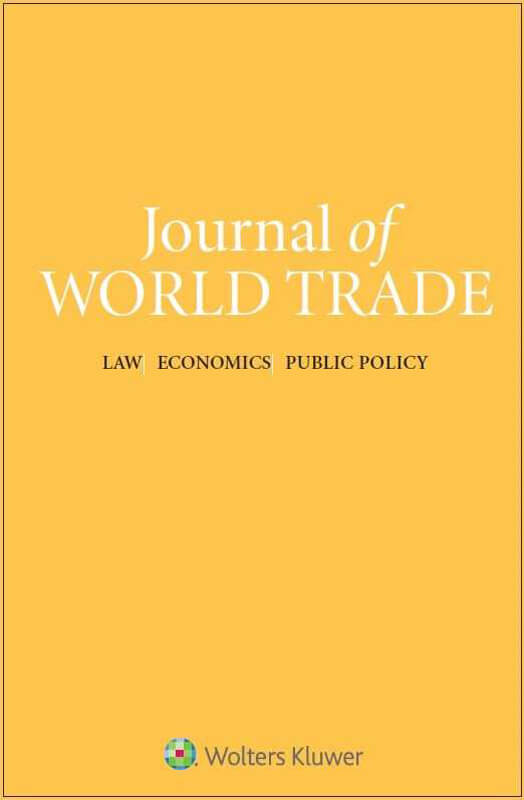Home > All journals > Journal of World Trade > 45(1) >

$25.00 - Rental (PDF) *
$49.00 - Article (PDF) *
Andrew Grainger
Journal of World Trade
Volume 45, Issue 1 (2011) pp. 39 – 62
https://doi.org/10.54648/trad2011002
Abstract
With falling tariff levels, it is probably not surprising that the non-tariff area and trade facilitation, in particular, are receiving growing attention. Apart from the World Trade Organization (WTO), trade facilitation is a subject of substance within a wide range of international organizations including several United Nations (UN)-type bodies, the World Customs Organization (WCO) as well as those concerned with economic development, supply chain security, and sector-specific issues such as international transport and logistics. The resulting body of international trade facilitation instruments and initiatives, which include conventions as well as detailed technical recommendations, is extensive. This article provides a general review of key elements and topics that are associated with trade facilitation and sets them against underlying challenges and obstacles in practice as well as for research. While much of the current effort in trade facilitation begins with a top-down premise – whereby governments seek to implement international conventions and recommendations nationally – the author argues that trade facilitation is inherently an operations-focused topic and deserves to be approached from a bottom-up approach, too. Such approach not only provides a strong case for an interdisciplinary research agenda, it also brings into question whether current institutions concerned with trade facilitation have the necessary capabilities to apply themselves to the more operational aspects associated with international trade.
Extract
